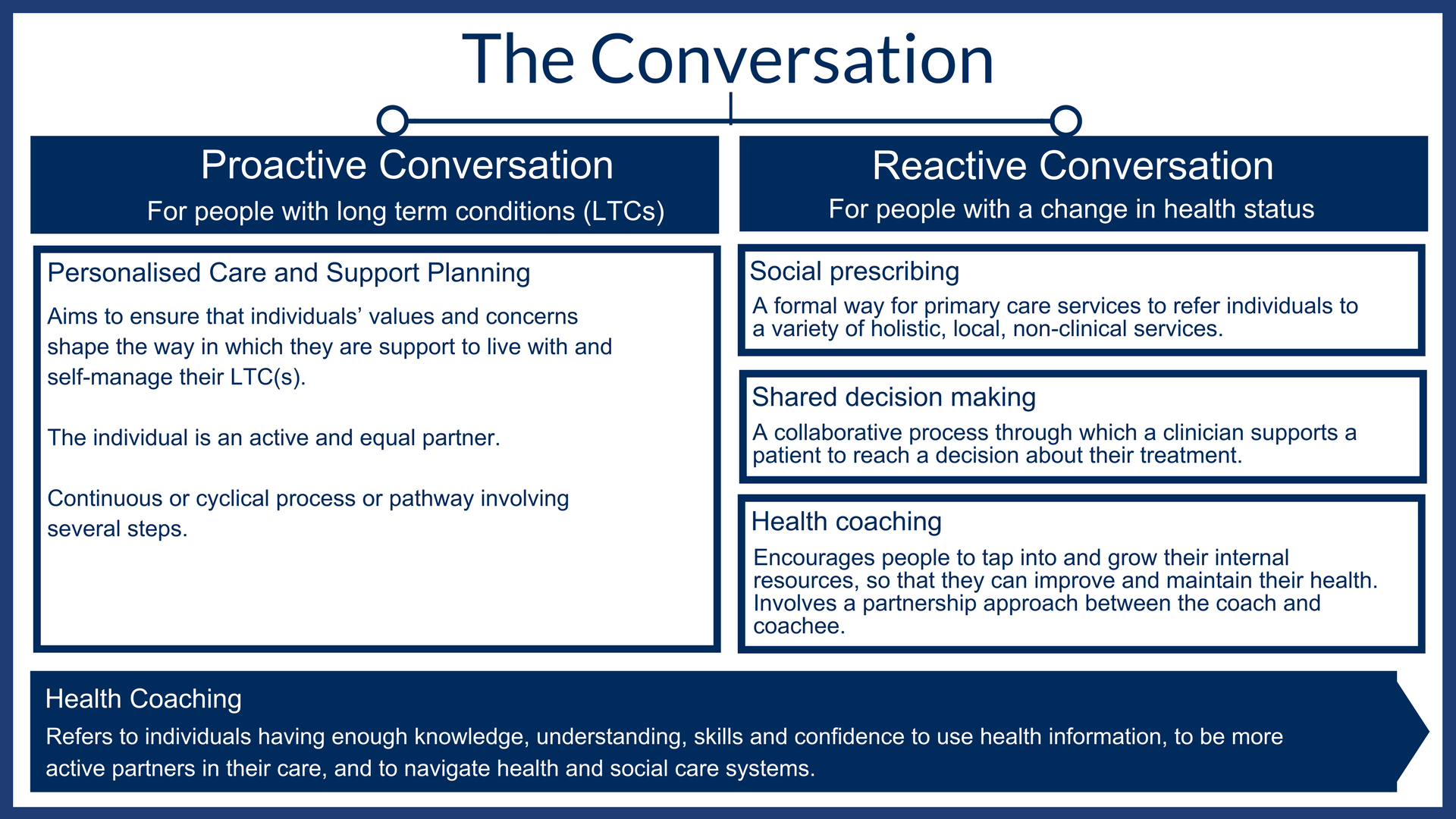Person-Centred Care toolkit
The Person-Centred Care toolkit has been developed with NHS England to support GPs and primary care teams.
The Conversations
The conversation starts with what matters to the person, what is working and not working for them, and where they want to be in the future – therefore setting their agenda, and moving towards the outcomes that the person wants to achieve.
There are broadly two type of conversation to be considered: reactive and proactive. Proactive conversations involve identifying individuals who may benefit from primary care support planning. Although there are a number of methods for doing this (PCSP guidance), the multidisciplinary team should be trained and engaged for the process to be most effective.
For proactive conversations, both the practitioner and person need to be prepared by sharing information beforehand and allowing time for reflection. Techniques such as shared decision making and health coaching as well as the use of social prescribing are pivotal to both proactive and reactive conversations.

Case Studies
- A Proactive Conversation [PDF]
- A Reactive Conversation [PDF]